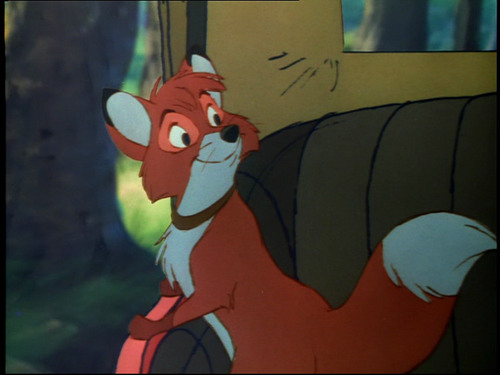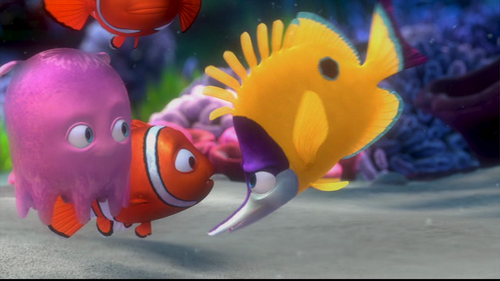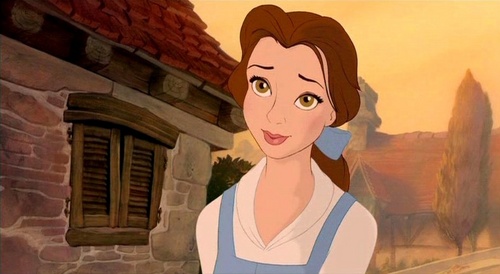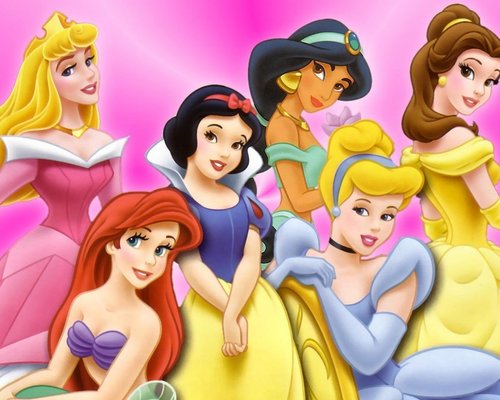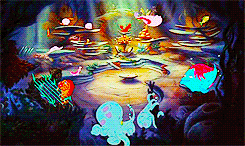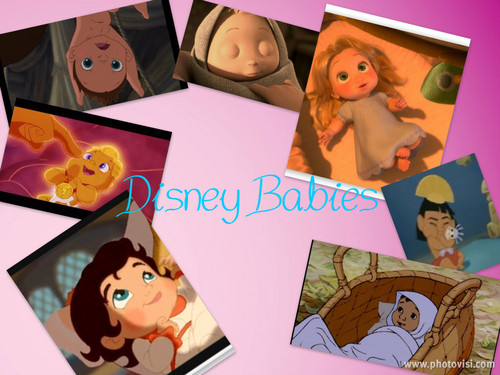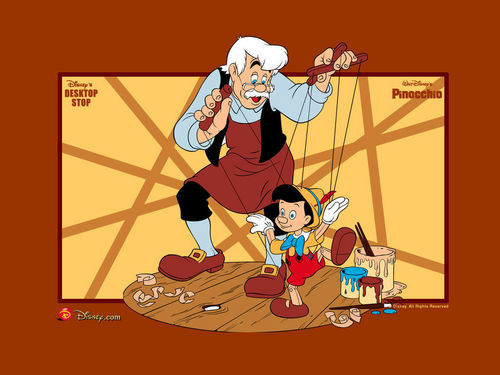Although Disney’s 1977 live-action/animated musical film Pete’s Dragon obviously showcases the relationship between Pete and his dragon, Elliott, I believe the もっと見る interesting bond is Pete and Nora’s. Pete is an orphaned youth who ran away from the treacherous Gogans, his adoptive family that viewed him as a piece of property rather than a person. Nora is a lighthouse keeper whom has waited over a 年 for her fiancé to return from his sea venture. Together, they remedy each other’s loneliness through friendship.
Once Pete narrowly evaded the Gogans’ clutches with the help of his only friend, Elliott, the pair stumbled upon the quaint fishing village of Passamaquoddy, Maine. In an effort not to attract undesirable attention from these strangers, Pete advised Elliott to turn himself invisible, but his plan backfired since Elliott unintentionally dismantled the neighbor’s fence and the townhouse’s staircase, broke many glasses of ミルク and cartons of eggs, scared a carriage horse, snared a schoolteacher’s petticoat, etc. due to his large size. The outraged townspeople blamed Pete for these occurrences and, almost as soon as they entered this haven, they were forced to locate another.
Meanwhile, Nora is presented to the viewer as a responsible individual in 検索 of her father, Lampie, at the local bar. She is presumably well-liked amongst her fellow citizens because she is immediately embraced によって its patrons, joyously referred to によって name, and fights off the advances of numerous men throughout her pursuit. Nora momentarily participated in their merriment, but soon guided Lampie back to their lighthouse and gently wiped away the frenzied sweat from his face. He insisted he’d seen a dragon – and indeed, Lampie had encountered a temporarily visible Elliott – but Nora tactfully ignored his wild claim, instructed him to rest and tucked him into bed.
Shortly thereafter, Nora glimpsed Pete taking refuge in a nearby cave and approached him, thusly initiating the beginning of their relationship. Fearful that she would alert law enforcement and he would be returned to the Gogans, he simply stated he was playing. Nora expressed concern, “Well, this isn’t exactly the best place for Tic-Tac-Toe – the tide’s coming in, and high water reaches this cave sometimes. あなた better head for home.” Pete became noticeably distraught and casted his eyes downward, so Nora perceptively probed him for “appropriate basic demographic and interest information” (173).
She inquired his parents’ whereabouts and his current residence, toward which Pete displayed the same uneasy shrug and remote facial expression, and finally his name. When Nora extended her open palm to lead Pete toward the lighthouse, he hesitantly stared at it for a few beats before his fingertips touched hers, but he abruptly changed his mind, retracted, and jumped a foot backwards. “What’s the matter?” Nora laughed, as she examined her hand, and somewhat posed the 質問 to herself. “It’s a hand, not a shark!” she incredulously remarked.
Then, in a distinctly affable tone, she again proposed, “You can finish that chowder, if you’d like,” and protracted her hand another time. Pete finally accepted it, presumptively because Nora gave him the opportunity to reach his own decision rather than exerted the authoritative power everyone in his life (besides Elliot) had. In the subsequent scene, Pete looked remarkably different – fresh faced with brushed hair and dressed in a new ローブ which replaced his former rags – and he eagerly consumed Nora’s chowder. Nora stirred a pot as Pete’s clothes dried above her, and she prompted “the 秒 または personal phase of the beginning relationship [in which their] conversations [began] to disclose もっと見る personal stories and related[d] critical incidents in [their] lives” (176).
Pete declared, “The Gogans own me, I guess. They 発言しました it was against the law for me to ever leave them.” Nora questioned Pete about the bruise on his neck, and he readily confessed Mr. Gogan had been responsible for it when he missed the bucket while milking the cow. Nora maintained her composure for Pete’s benefit, and asked if that had previously happened. Pete admitted it was Mr. Gogan’s frequent reaction, and revealed that he’d already experienced an unsuccessful run away attempt but would not fail now. Pete conveyed his gratitude, “Nora, no one’s ever been this nice to me – I’ll always remember it.”
Next, Nora suggested Pete stay the night and calmly asserted they would discuss his situation later. He happily consented, and asked if she were a mother, and if she planned on getting married. Upon passing a framed photograph of a man around Nora’s age, Pete asked Nora to identify him, and she told him that it was her fiancé, Paul. Pete consoled Nora, telling her that Paul would return someday, even though Passamaquoddy’s majority agreed his ship had been wrecked from the wrath of a storm. Nora confided, “I tell myself the same thing every day, standing up there watching the ships on the horizon. Time I should be thinking of other things, so they tell me.”
Pete confidently announced Elliott would be able to inform him of Paul’s predicament, and this is significant because he trusted Nora enough to disclose Elliot’s identity in the process. Although she clearly didn’t believe Elliott was anything もっと見る than an imaginary friend, she good-naturedly asked for a 説明 of him while she worked, which further indicated genuine attentiveness and patience regardless of other priorities.
Enter “the third または exit phase of the beginning relationship stage. If the former strangers decide they like each other, that they have enough in common, and that the advantages of pursuing the relationship outweigh the disadvantages, they will continue to meet and invest in the relationship with self-disclosure” (176). As they sang a duet together, Nora handed Pete freshly laundered clothes, respectfully faced the opposite direction while he changed, helped pull Pete’s arms through the sleeves of his dressing gown, and made sure he safely climbed to the 上, ページのトップへ bunk bed.
Nora claimed, “It’s clear that フレンズ can be different – yes, I understand あなた know.” Later, Pete reciprocated, “Oh, I had one friend によって my side; now, I have two. Him and you!” She rested her elbow on his bedpost and lowered her head to communicate a nonthreatening physical presence, warmly smiled at him in the meantime, covered him with his blanket, kissed him on the head, and warmly gazed at him right after she settled down to resume her work.
The following morning, Nora commenced the developing stage of their alliance. She bought Pete an entirely new wardrobe and thanked Lampie for playing “make-believe” with him in regards to Elliott’s existence. Nora appreciated this particular effort because she theorized 発言しました figment had helped Pete preserve some semblance of normal childhood/innocence which he had otherwise clearly been deprived, and reasoned that Elliot must be “sort of a family he made up.”
Nora continued to fulfill his “inclusion, affection and control needs… desire to be in the company of other people… desire to 愛 and be loved… [and] desire to influence the events and people around us and to be influenced によって others” (177). She gave him sensible chores which promoted the teamwork needed to manage the lighthouse, encouraged him to attend school, and vouched for his aptitude in front of the strict, unpleasant schoolteacher he’d upset when he’d arrived – she even lied about his prior records being destroyed in a tragic 火災, 火 to secure his education.
Furthermore, Nora defended Pete when the fishermen unjustly accused him of being bad luck and driving the 魚 away. She shielded him, called them superstitious ding-dongs, and retorted that they should know better because the shifting of the fishing grounds is unpredictable. Nora gathered the schoolchildren around Pete, spoke of Elliott as a metaphorical outsider in 検索 of a friend, and preached, “Love 与えられた freely can spare this world – let friendly feelings bloom!” In the meantime, Pete was a proactive co-leader, and he affectionately pushed Nora on the swing.
Since Nora risked legal trouble and the possibility of tarnishing her good reputation, this proved she felt this relationship’s “rewards outweighed its costs” (177). Moreover, when the nefarious conmen Doctor Terminus and Hoagy offered to buy Elliott for $5, she instinctively foiled their scheme. This film was set in the early twentieth century, so $5 adjusted for inflation would be worth approximately $150 today, and it is an understatement that would be considered a lucrative deal for an imaginary friend. However, Nora rejected it because she knew how much Elliott meant to Pete, and she didn’t want to upset him.
The aforementioned exemplified the 全体, 全体的です message of this excerpt: “Throughout our relationships, we continue to compare our costs to the rewards that we receive. As long as we feel that what we are getting from the relationship is worth what we are giving, we continue developing [it]…” In other words, Pete might have helped she and Lampie around the lighthouse, but he also cost money to feed and clothe, and she had to invest her time into walking him to school and raising him to be an upright citizen. Nora had the opportunity to easily make money at Pete’s expense, but she didn’t because his trust and 愛 meant significantly もっと見る to her than financial advantages.
Additionally, Nora and Pete giddily conspired to frighten Doctor Terminus and Hoagy によって sounding the fog horn. This is an example of their mutual likes and dislikes – performing practical jokes, and greedy characters, respectively – and emphasized their consistent practice of joint activities due to the fact that they were already painting the lighthouse. The foghorn awoke Lampie, too, and Nora defiantly yanked him backwards when he tried to go back inside because she recognized how positively Pete responded to his presence. Afterward, she formerly announced that they wanted Pete to live with them but didn’t pressure his decision.
When Pete emphatically agreed, Nora acknowledged it as a momentous occasion, and the trio celebrated によって 歌う of “a brazzle, dazzle 日 [wherein] a lifetime of joy [is achieved] in just a few hours.” Unfortunately, their festive mood was challenged によって the Gogans, but despite their legitimate Bill of Sale document, Nora boldly asserted, “You can’t have him! あなた don’t 愛 him! All you’ve done up to now is break is heart! You’ll abuse him, and misuse him… watch out, または I’ll take あなた apart!” She threatened to hit them in between the eyes with an oar.
In the end, Pete escaped the Gogans’, Doctor Terminus’ and Hoagy’s combined plot to abduct him and slice Elliott’s body for its innumerable valuable properties, and he selflessly thought of Nora and Lampie’s well-being first and foremost. Elliott flew Pete back to the lighthouse where he conjured 火災, 火 from his mouth in order to produce the light required for Paul’s 安全, 安全です landing into the harbor. These instances signified stabilization because Nora and Pete “continued to emotionally invest in the relationship and maintain their commitment to their partner while managing [its] tensions” (178).
Pete and Elliott were revered for resurrecting a local hero, reversing the trend of the meager fishing grounds, saving the lives of the mayor and his cohorts, and ridding the peaceful town of 発言しました nasty villains. Thanks to his healthy relationship with Nora, Pete was so well-adjusted and content that he understood Elliott had to 移動する on to help others in trouble, and bid his extremely loyal companion farewell. Ultimately, Nora’s maternal disposition, Pete’s adaptability, and their shared resourcefulness fortified a unique, complementary connection.
Work Cited
Verderber, Kathleen S. and Rudolph F. Inter-Act: Interpersonal Communication Concepts, Skills, and Contexts: Thirteenth Edition. New York: オックスフォード 大学 Press, 2013. 173-178. Print.
Once Pete narrowly evaded the Gogans’ clutches with the help of his only friend, Elliott, the pair stumbled upon the quaint fishing village of Passamaquoddy, Maine. In an effort not to attract undesirable attention from these strangers, Pete advised Elliott to turn himself invisible, but his plan backfired since Elliott unintentionally dismantled the neighbor’s fence and the townhouse’s staircase, broke many glasses of ミルク and cartons of eggs, scared a carriage horse, snared a schoolteacher’s petticoat, etc. due to his large size. The outraged townspeople blamed Pete for these occurrences and, almost as soon as they entered this haven, they were forced to locate another.
Meanwhile, Nora is presented to the viewer as a responsible individual in 検索 of her father, Lampie, at the local bar. She is presumably well-liked amongst her fellow citizens because she is immediately embraced によって its patrons, joyously referred to によって name, and fights off the advances of numerous men throughout her pursuit. Nora momentarily participated in their merriment, but soon guided Lampie back to their lighthouse and gently wiped away the frenzied sweat from his face. He insisted he’d seen a dragon – and indeed, Lampie had encountered a temporarily visible Elliott – but Nora tactfully ignored his wild claim, instructed him to rest and tucked him into bed.
Shortly thereafter, Nora glimpsed Pete taking refuge in a nearby cave and approached him, thusly initiating the beginning of their relationship. Fearful that she would alert law enforcement and he would be returned to the Gogans, he simply stated he was playing. Nora expressed concern, “Well, this isn’t exactly the best place for Tic-Tac-Toe – the tide’s coming in, and high water reaches this cave sometimes. あなた better head for home.” Pete became noticeably distraught and casted his eyes downward, so Nora perceptively probed him for “appropriate basic demographic and interest information” (173).
She inquired his parents’ whereabouts and his current residence, toward which Pete displayed the same uneasy shrug and remote facial expression, and finally his name. When Nora extended her open palm to lead Pete toward the lighthouse, he hesitantly stared at it for a few beats before his fingertips touched hers, but he abruptly changed his mind, retracted, and jumped a foot backwards. “What’s the matter?” Nora laughed, as she examined her hand, and somewhat posed the 質問 to herself. “It’s a hand, not a shark!” she incredulously remarked.
Then, in a distinctly affable tone, she again proposed, “You can finish that chowder, if you’d like,” and protracted her hand another time. Pete finally accepted it, presumptively because Nora gave him the opportunity to reach his own decision rather than exerted the authoritative power everyone in his life (besides Elliot) had. In the subsequent scene, Pete looked remarkably different – fresh faced with brushed hair and dressed in a new ローブ which replaced his former rags – and he eagerly consumed Nora’s chowder. Nora stirred a pot as Pete’s clothes dried above her, and she prompted “the 秒 または personal phase of the beginning relationship [in which their] conversations [began] to disclose もっと見る personal stories and related[d] critical incidents in [their] lives” (176).
Pete declared, “The Gogans own me, I guess. They 発言しました it was against the law for me to ever leave them.” Nora questioned Pete about the bruise on his neck, and he readily confessed Mr. Gogan had been responsible for it when he missed the bucket while milking the cow. Nora maintained her composure for Pete’s benefit, and asked if that had previously happened. Pete admitted it was Mr. Gogan’s frequent reaction, and revealed that he’d already experienced an unsuccessful run away attempt but would not fail now. Pete conveyed his gratitude, “Nora, no one’s ever been this nice to me – I’ll always remember it.”
Next, Nora suggested Pete stay the night and calmly asserted they would discuss his situation later. He happily consented, and asked if she were a mother, and if she planned on getting married. Upon passing a framed photograph of a man around Nora’s age, Pete asked Nora to identify him, and she told him that it was her fiancé, Paul. Pete consoled Nora, telling her that Paul would return someday, even though Passamaquoddy’s majority agreed his ship had been wrecked from the wrath of a storm. Nora confided, “I tell myself the same thing every day, standing up there watching the ships on the horizon. Time I should be thinking of other things, so they tell me.”
Pete confidently announced Elliott would be able to inform him of Paul’s predicament, and this is significant because he trusted Nora enough to disclose Elliot’s identity in the process. Although she clearly didn’t believe Elliott was anything もっと見る than an imaginary friend, she good-naturedly asked for a 説明 of him while she worked, which further indicated genuine attentiveness and patience regardless of other priorities.
Enter “the third または exit phase of the beginning relationship stage. If the former strangers decide they like each other, that they have enough in common, and that the advantages of pursuing the relationship outweigh the disadvantages, they will continue to meet and invest in the relationship with self-disclosure” (176). As they sang a duet together, Nora handed Pete freshly laundered clothes, respectfully faced the opposite direction while he changed, helped pull Pete’s arms through the sleeves of his dressing gown, and made sure he safely climbed to the 上, ページのトップへ bunk bed.
Nora claimed, “It’s clear that フレンズ can be different – yes, I understand あなた know.” Later, Pete reciprocated, “Oh, I had one friend によって my side; now, I have two. Him and you!” She rested her elbow on his bedpost and lowered her head to communicate a nonthreatening physical presence, warmly smiled at him in the meantime, covered him with his blanket, kissed him on the head, and warmly gazed at him right after she settled down to resume her work.
The following morning, Nora commenced the developing stage of their alliance. She bought Pete an entirely new wardrobe and thanked Lampie for playing “make-believe” with him in regards to Elliott’s existence. Nora appreciated this particular effort because she theorized 発言しました figment had helped Pete preserve some semblance of normal childhood/innocence which he had otherwise clearly been deprived, and reasoned that Elliot must be “sort of a family he made up.”
Nora continued to fulfill his “inclusion, affection and control needs… desire to be in the company of other people… desire to 愛 and be loved… [and] desire to influence the events and people around us and to be influenced によって others” (177). She gave him sensible chores which promoted the teamwork needed to manage the lighthouse, encouraged him to attend school, and vouched for his aptitude in front of the strict, unpleasant schoolteacher he’d upset when he’d arrived – she even lied about his prior records being destroyed in a tragic 火災, 火 to secure his education.
Furthermore, Nora defended Pete when the fishermen unjustly accused him of being bad luck and driving the 魚 away. She shielded him, called them superstitious ding-dongs, and retorted that they should know better because the shifting of the fishing grounds is unpredictable. Nora gathered the schoolchildren around Pete, spoke of Elliott as a metaphorical outsider in 検索 of a friend, and preached, “Love 与えられた freely can spare this world – let friendly feelings bloom!” In the meantime, Pete was a proactive co-leader, and he affectionately pushed Nora on the swing.
Since Nora risked legal trouble and the possibility of tarnishing her good reputation, this proved she felt this relationship’s “rewards outweighed its costs” (177). Moreover, when the nefarious conmen Doctor Terminus and Hoagy offered to buy Elliott for $5, she instinctively foiled their scheme. This film was set in the early twentieth century, so $5 adjusted for inflation would be worth approximately $150 today, and it is an understatement that would be considered a lucrative deal for an imaginary friend. However, Nora rejected it because she knew how much Elliott meant to Pete, and she didn’t want to upset him.
The aforementioned exemplified the 全体, 全体的です message of this excerpt: “Throughout our relationships, we continue to compare our costs to the rewards that we receive. As long as we feel that what we are getting from the relationship is worth what we are giving, we continue developing [it]…” In other words, Pete might have helped she and Lampie around the lighthouse, but he also cost money to feed and clothe, and she had to invest her time into walking him to school and raising him to be an upright citizen. Nora had the opportunity to easily make money at Pete’s expense, but she didn’t because his trust and 愛 meant significantly もっと見る to her than financial advantages.
Additionally, Nora and Pete giddily conspired to frighten Doctor Terminus and Hoagy によって sounding the fog horn. This is an example of their mutual likes and dislikes – performing practical jokes, and greedy characters, respectively – and emphasized their consistent practice of joint activities due to the fact that they were already painting the lighthouse. The foghorn awoke Lampie, too, and Nora defiantly yanked him backwards when he tried to go back inside because she recognized how positively Pete responded to his presence. Afterward, she formerly announced that they wanted Pete to live with them but didn’t pressure his decision.
When Pete emphatically agreed, Nora acknowledged it as a momentous occasion, and the trio celebrated によって 歌う of “a brazzle, dazzle 日 [wherein] a lifetime of joy [is achieved] in just a few hours.” Unfortunately, their festive mood was challenged によって the Gogans, but despite their legitimate Bill of Sale document, Nora boldly asserted, “You can’t have him! あなた don’t 愛 him! All you’ve done up to now is break is heart! You’ll abuse him, and misuse him… watch out, または I’ll take あなた apart!” She threatened to hit them in between the eyes with an oar.
In the end, Pete escaped the Gogans’, Doctor Terminus’ and Hoagy’s combined plot to abduct him and slice Elliott’s body for its innumerable valuable properties, and he selflessly thought of Nora and Lampie’s well-being first and foremost. Elliott flew Pete back to the lighthouse where he conjured 火災, 火 from his mouth in order to produce the light required for Paul’s 安全, 安全です landing into the harbor. These instances signified stabilization because Nora and Pete “continued to emotionally invest in the relationship and maintain their commitment to their partner while managing [its] tensions” (178).
Pete and Elliott were revered for resurrecting a local hero, reversing the trend of the meager fishing grounds, saving the lives of the mayor and his cohorts, and ridding the peaceful town of 発言しました nasty villains. Thanks to his healthy relationship with Nora, Pete was so well-adjusted and content that he understood Elliott had to 移動する on to help others in trouble, and bid his extremely loyal companion farewell. Ultimately, Nora’s maternal disposition, Pete’s adaptability, and their shared resourcefulness fortified a unique, complementary connection.
Work Cited
Verderber, Kathleen S. and Rudolph F. Inter-Act: Interpersonal Communication Concepts, Skills, and Contexts: Thirteenth Edition. New York: オックスフォード 大学 Press, 2013. 173-178. Print.
It's something i've noticed a lot is that characters like Pocahontas and Esmeralda always get their names mispronounced によって people.
Is there a reason for it? I know not everybody is good with names but it's bizarre how it's always the same names and the same mistakes that occur.
It's really strange because other "difficult" names like Jafar または Rapunzel don't get mispronounced that much. And it's not really a difficult name to mispronounce, at least we see how is Pocahontas' name written in the screen (the title). I'm guessing the thing with Esmeralda is people unfamiliar with Spanish, but still, it's a little bizarre.
Is there a reason for it? I know not everybody is good with names but it's bizarre how it's always the same names and the same mistakes that occur.
It's really strange because other "difficult" names like Jafar または Rapunzel don't get mispronounced that much. And it's not really a difficult name to mispronounce, at least we see how is Pocahontas' name written in the screen (the title). I'm guessing the thing with Esmeralda is people unfamiliar with Spanish, but still, it's a little bizarre.
Okay, I know " The Lion King" is like the almighty oracle to stage and screen critics. But does Every ディズニー stage adaptation have to be compared to its standards. Im sure Tarzan, The Little Mermaid, Mary Poppins and Beauty and the Beast are all just as good as The Lion King. In my honest opinion I think the Lion King has become overrated in the years since its movie release. Even the animated films are compared to it. Not everything needs comparison sometimes things are valuable and noteworthy on their own. The audience reviewed The Little Mermaid and 95% of them loved it. So in the end I think critics are just looking for the bad in things instead of enjoying the 表示する for the masterpiece that it is. I am seeing it this fall on Tour. And I have heard it is great from fellow fanpopers. Peace and take this however あなた wish.


Ariel giving up her signature voice to be human









